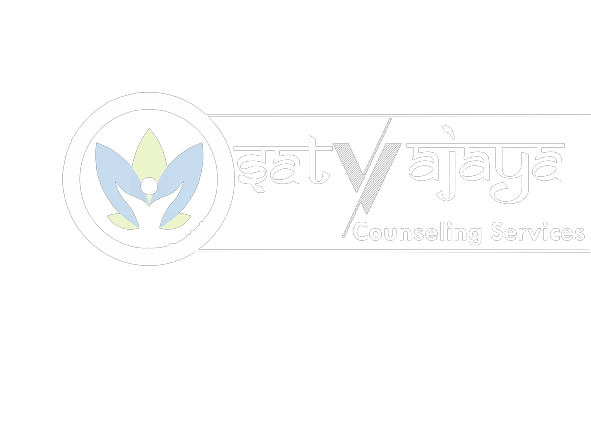Career counselling can no more be viewed as luxury that only a few individuals could access. It is increasingly being felt as a major necessity, particularly in educational settings. Carrier counselling is at the service of carter development in individuals. While career counselling includes all counselling activities associated with career choices over life span, career development on the other hand refers to a lifelong process of developing beliefs and values, skills and aptitudes, interests, personality characteristics and knowledge of the world of work.
Career is an occupation or profession especially one that requires special training, followed as one’s life work. Our career plays a very important role in our lives because our psychological, social and economic profiles for the major part of our lives depend upon it.
For many work itself has become an important way to establish personal identity, to meet social needs, to get satisfaction through accomplishment and to find a purpose and meaning in life. the selection of carrier assumes great importance in our lives. Choice of right career can give a person a meaningful, comfortable and interesting life. carrier planning is a lifelong process, which includes choosing a occupation, getting a job , growing in the job, possibly changing careers and eventually retiring. It is a process of decision-making in which the individual seeks to find the optimal fit between career preparation and goals and realities of the world of work.
Individuals are becoming more aware of the importance of being planful and self-directed in building a carrier/life path. Given the quickly changing labour market, many people need help in : making career decisions, successfully manoeuvring multiple career , transitions and retraining and\or upgrading their skills throughout their working lives.
Career counselling and guidance should ideally be integrated into the entire educational process. In elementary/primary school, programs need to be designed to provide students with an awareness of occupational roles, the role to work in society, social behaviour and responsible actions. In middle school, career guidance programs should be designed to help students develop concept of basic occupational skills, learn decision-making skills and relate the world of work. During high school and upto 12th standard, career guidance programs need to focus on continuing career exploration through exploring preferences, interests, and aptitudes as well as preparing for entry into further training. In institutions of higher learning the needs of students can be met by having programs that help them revaluate interests and aptitudes, reaffirm their choice of occupational/ educational streams, develop scientific career skills and plan for entry into a career field.
Increasing evidence also suggests the need for career guidance program for adults. The number of adults in career transition has been on the rise. No longer are people satisfied with one secure job through their life. Privatization and downsizing is on the rise. As they search for meaningful work, some adults have experiences a change in needs. These new needs support the notion of career guidance programs over the life span.
Career decision involves
- Skill assessment
- Interest assessment
- Personality assessment
- Researching Occupations
- Career Decision
- Plan of action.
Career counselling for women
Today, the career choices of women are no longer narrowed down to a few traditionally held working roles such as nurse, teacher or secretary. Women are rearranging their career priorities-planning for lifelong career in a wide range of occupations-even as they balance their roles in marriage an motherhood.
Women face a variety of barriers as they look beyond the traditional feminine working roles. First, the bias associated with sex-role stereotypes in the working world still exists. Second, the woman who gives her career development equal status with her husband’s will find acceptance of her role personally challenging, with little support from family and society. In essence, there is resistance in our society to changing roles of women in the working world.
With the rapidly changing values regarding traditional sex roles a number of additional factors influence the type and magnitude of critical career decisions currently being made by women. For example, The decline of motherhood as a full-time occupation is becoming increasingly prevalent in our society. Consequently, women feel freer to consider full-time careers outside the home. In addition, current financial needs of families have made it necessary for both husband and wife to work. Also, jobs traditionally allocated to men are not available to women.
For many women who are unable to perceive themselves as career-oriented and who wish to break away for traditional feminine roles, the need for counselling programs may be even greater. For these women, the consideration of a lifelong career is entirely new and conflicts with concepts developed in early socialization; that is, women were primarily “socialized” to see themselves as homemakers while men pursued careers.
Conflicts between homemaking and career remain a concern that must address in career-counselling programs for women. It is difficult for many women to move toward the innovative dimension(giving equal emphasis to job and home), primarily because of psychological barriers, Some women may be reluctant to become more career-oriented for fear of losing the stereotypical female identity so readily accepted by our society. For many, the loss of this identity in indeed threatening and deters serious focus on career development.
Women have a more difficult time developing self-identity, they receive less encouragement and less social pressure to become independent. Moreover their identity revolves around those of their husband and children.
The emerging trend toward equalization of job opportunities is seen in the significant increase of women working in skilled occupations. This suggests a number of special needs for women. One need is for information resources about non-traditional occupations for women so as to make a wider range of choices available to women.

